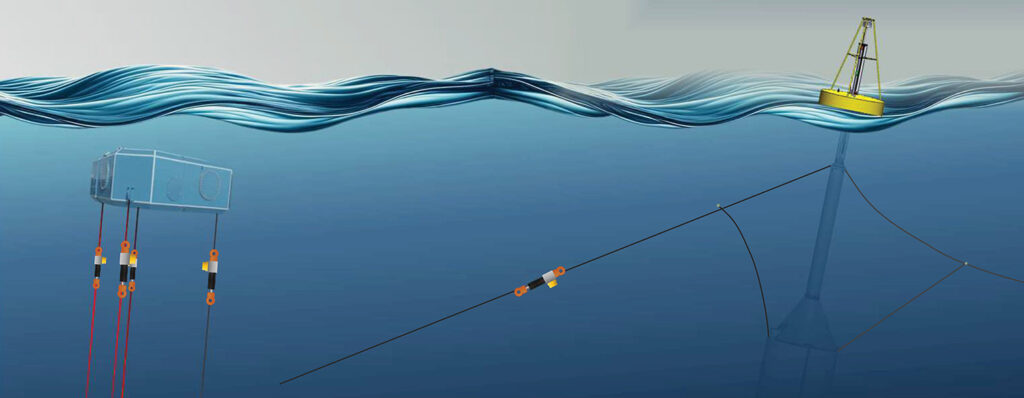In an effort to tap into the vast potential of ocean-based energy, the University of Michigan has been awarded four grants from the U.S. Department of Energy, totaling approximately $5 million. These funds aim to innovate and enhance technologies that harness electricity from wave motion and offshore winds, promising to make them more durable and efficient.
The grants will facilitate the development of several key technologies:
- Shock absorbers that extend the lifespan of mooring lines while powering sensors to monitor devices.
- Innovative noise-reducing solutions such as balloon curtains and metal poles to minimize the impact of offshore wind turbines on marine life.
- Advanced hardware-in-loop platforms for laboratory testing of wave energy devices, simulating the power of real ocean waves.
- A standardized testing method and a public database for evaluating the performance of power takeoff components in wave energy devices.
Collaborators in these projects include experts from Pacific Northwest National Laboratory, the National Renewable Energy Laboratory, Sandia National Labs, the American Bureau of Shipping, and Virginia Tech.
Marine energy holds significant promise as a renewable resource. Ocean waves in the U.S. alone could provide power equivalent to nearly 60% of the country’s current electricity production, while global offshore wind energy has the potential to meet the world’s electricity needs 18 times over.
The shock absorbers are a pivotal innovation in this initiative. They are designed to prevent mooring lines from breaking, thus ensuring that wave energy devices remain operational and continuing to generate electricity. The absorbers will also produce energy to run onboard sensors monitoring the device’s condition.
“It can cost around $2 million to fix a mooring line that is only 30 to 80 meters deep,” stated Lei Zuo, the Herbet C. Sadler Collegiate Professor of Engineering and the project’s principal investigator. “It’s best to create as robust a system as possible.”
Environmental concerns are another critical challenge for marine energy deployment, particularly the noise pollution from wind turbines, which could disrupt marine life. The proposed noise-reduction solutions aim to address these issues effectively.
Furthermore, the additional grants will support the testing of wave energy converters and their components. Current limitations in testing environments mean prototypes must be significantly scaled down, which can lead to uncertainties in their performance in real ocean conditions. The new platforms will allow more realistic evaluations, providing engineers with the confidence needed to deploy these technologies at sea.
Among the leading contributors are Xiaofan Li, previously a research scientist at the University of Michigan and now at the University of Hong Kong, and David Dowling, the ABS Professor of Marine and Offshore Design Performance.





